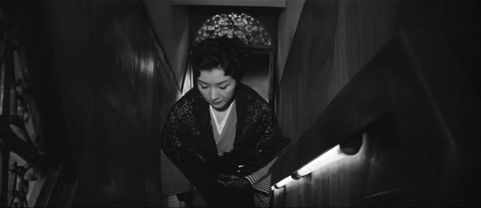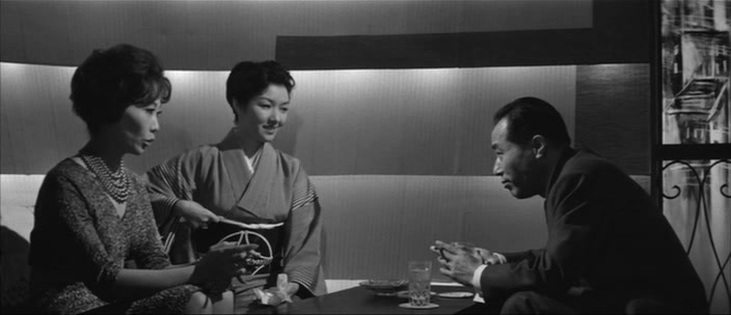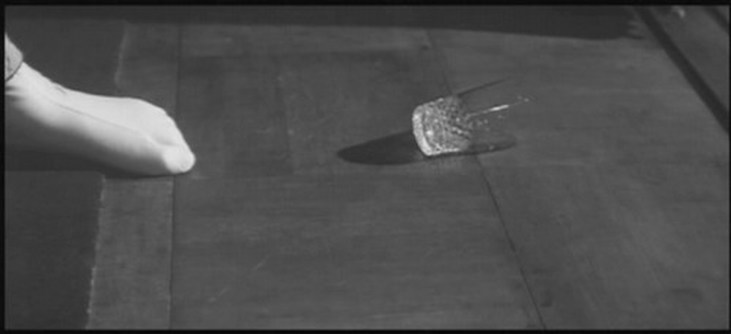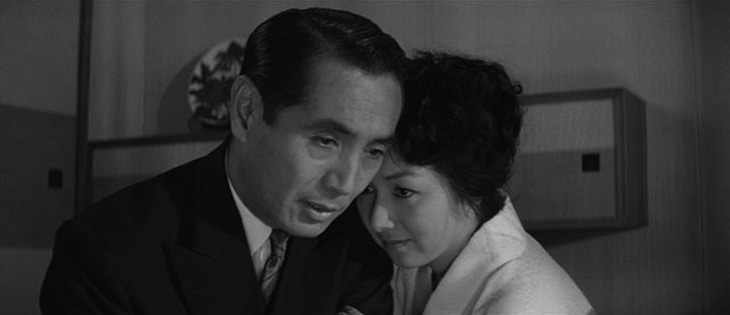 While I consider myself somewhat of a novice when it comes to Mikio Naruse, having explored the canon of nearly every other titan of Japanese cinema far more by comparison, the one thing that always seems to stand out when it comes to this celebrated filmmaker is the touch of delicacy and grace that seems to envelope much of his work. When A Woman Ascends the Stairs is no different, being a tender, humanist study of one young woman's struggles in an unforgiving society. Set in 1950s Tokyo, When A Woman Ascends The Stairs takes a naturalistic approach, chronicling the life of Keiko, a woman who works as a bar hostess in Tokyo's Ginza district, entertaining businessmen after work . Regardless of being sharp, resourceful, and strong-willed, Keiko struggles mighty to find her own sense of independence through both personal and financial freedom, falling victim to the oppressive system she inhabits, no matter how hard she tries, one that is completely dominated by placing men atop of the pedestal. Lustrously photographed in monochrome and featuring elegant direction from Naruse, When A Woman Ascends the Stairs is a quietly devastating drama which paints a rather harrowing portrait of woman during this era of Japan, one in which their successes and failures were inherently linked to their relationships with men in their life. There is nothing abrasive or overly dramatic about When A Woman Ascends The Stairs, rather a sense of calm, steadfast execution, being a film that lulls you to sleep in a sense as it evokes the entrapment felt by its main protagonist. For Keiko, her choices begin to appear quite simple, either get married or struggle to makes ends meet. In an effort to establish herself independently, she attempts to buy a bar of her own, but it becomes apparent that even this will be extremely difficult, due to her family routinely hounding her for money, and the continually debt she accrues by simply performing her job as a barmade/hostess in order to evade becoming a woman of the night, if you know what I mean. While When A Woman Ascends The Stairs is quite harrowing, following the ups and downs of Keiko's struggles for independence as a woman, the film never falls into a sense of despair, nihilism, or even pessimism, with Naruse optimistic spirit ringing out in the final frames, as Keiko herself keeps on pushing forward, optimistically believing that she will someday own her own bar, and by proxy her own independence form this male-centric culture. Beautifully photographed and exquisitely understated, Mikio Naruse's When A Woman Ascends The Stairs is a powerful showpiece of Mikio Naruse's filmmaking, being a film that is harrowing, yet optimistic, encompassing the range of emotions associated with a hard-working individual being a victim of the system.
0 Comments
Leave a Reply. |
AuthorLove of all things cinema brought me here. Archives
June 2023
|



 RSS Feed
RSS Feed
